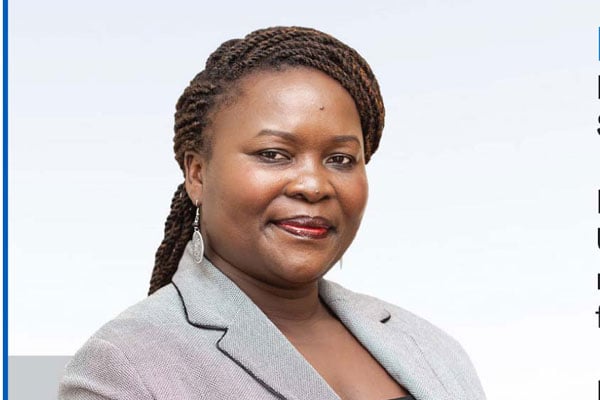Continue engaging UCC on various directives

Emilly C. Maractho
What you need to know:
The necessity for regulation is further compounded by the rapidly changing media landscape. Recent developments in the media and technological revolution invite citizens to participate in communication and reconfigures the role of media in democratisation while the lines between who a journalist is and not is blurred. As such, there has been a power shift in information flow
The Uganda Communications Commission (UCC) on September 7, issued a public notice reminding providers of online data communication and broadcasting services to obtain authorisation.
They advised ‘all persons currently offering or planning to commence the provision of online data communication and broadcasting services to obtain authorisation from UCC before providing such services to the public by October 5’.
Predictably, the public had no kind words for UCC. The notice has been interpreted as one thing – an assault on freedom of expression, that many already see as limited, despite presenting plausible reasons. For UCC, they are only exercising their mandate. To the public, how they execute that matters.
According to the Uganda Communications Act 2013, the objective of the law is ‘to develop a modern communications sector, which includes telecommunications, broadcasting, radio communications, postal communications, data communication and infrastructure’. The law merged the Electronic Media Act 1996 and Uganda Communications Act 1997.
The term to develop goes beyond regulation, which is not entirely about control or minimum standards. The institution has tended to overstretch its regulatory function in the case of the media, making it difficult for the sector to sustainably grow.
More so, given our media context with limited media literacy and numerous challenges journalists face, I am one of those who argue for regulation because the absence of standards could be as catastrophic as the presence of restrictive and retrogressive laws.
The question of regulation for me has always been about what form of regulation will work for us. Owing to the public good nature of information, the issue should be on what meaningful role government can play in the development of a vibrant and viable media through regulatory measures that enable rather than frustrate growth.
The necessity for regulation is further compounded by the rapidly changing media landscape. Recent developments in the media and technological revolution invite citizens to participate in communication and reconfigures the role of media in democratisation while the lines between who a journalist is and not is blurred. As such, there has been a power shift in information flow.
The UCC should, therefore, be working to enlarge the communicative space without necessarily creating conditions that make enjoyment of freedom of expression difficult. Section 3 ( c) of the UCC Act provides for ‘expanding the existing variety of communications services available in Uganda to include modern and innovative communications services’.
Yet, the presence of several other laws may hinder that mandate. With the current regulatory framework, one wonders if there is any need for this kind of headache.
In 2010, government enacted the Interception of Communication Act and quickly followed with three laws in 2011 namely the Electronic Signatures Act, Computer Misuse Act and Electronic Transactions Act. Then there is Anti-Pornography Act of 2014 and a host of regulations including for content and more recent ones for popular culture. All these provide for regulation of online communication. Even then, these laws lack reasonable safeguards against abuse.
Professor Francis Nyamnjoh, the Cameroonian anthropologist, writes in The politics of belonging: “Whether new technologies will serve the needs of any community depends on the policies designed to harness them, especially in Africa where, in a time of political and social influx, matters of policy affect the relationship between the media and democracy.”
Indeed, the communication law has affected the relationship between media and democracy. For instance, Section 6 of the UCC Act, 2013 is clear on the powers of the commission. In the case of charging fees, it is limited to services provided by the commission.
Whereas section 27 states that a person shall not broadcast without a broadcasting licence issued by the commission, a “broadcaster” means a licensed person who packages and distributes or distributes television or radio programmed services for reception by subscribers or the public, regardless of the technology”. That clause may be limited to radio and television programmed services in order not to kill creativity needed for creation of quality content.
There are many things the UCC may concern itself with - how they can close the digital divide, how they can harness the power of technology for development and democracy, or how they should cultivate a balance between enabling new media on the one hand and protecting the interests of consumers, operators, viewers and listeners on the other.
There is need to continue constructively engaging UCC on how it can obtain the above objectives and regulate without directly controlling the media and communication. There is also need to persuade UCC to engage industry players in their attempt to regulate.
Ms Maractho is the head and senior lecturer, Department of Journalism and Media studies at UCU.
[email protected]




